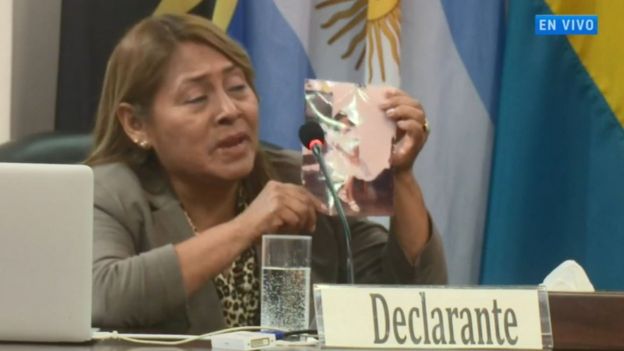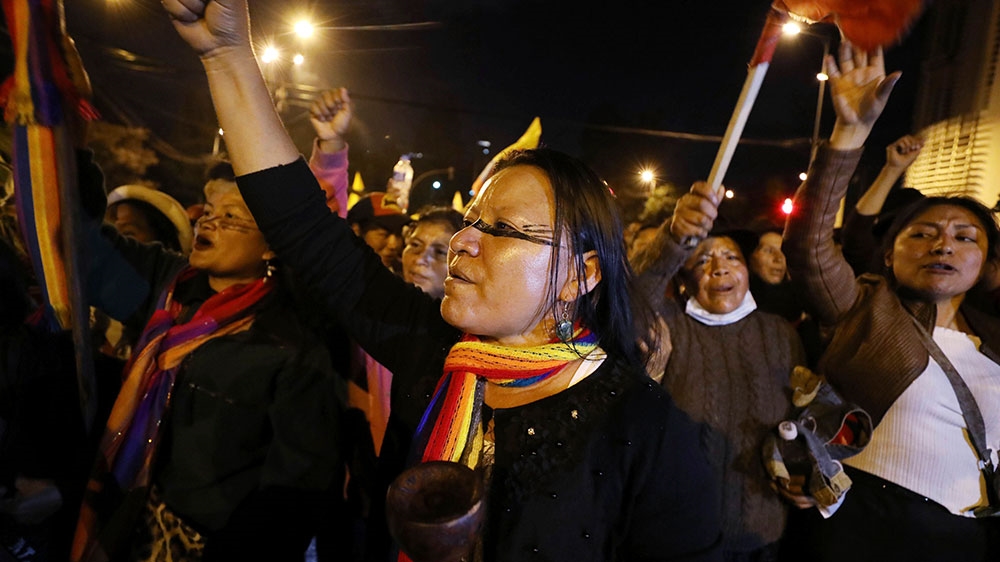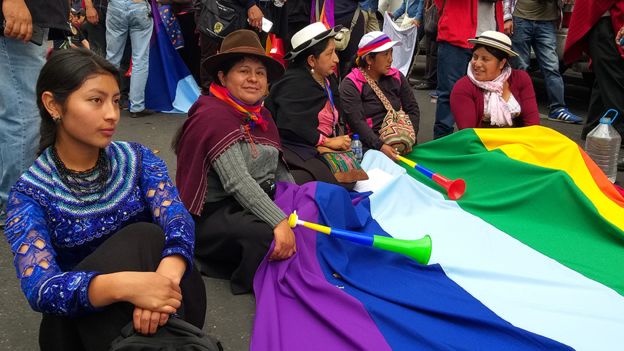
Petita Albarracín testifying
On January 28, 2020, Petita Albarracín, an Ecuadoran woman, pleaded before the Inter-American Court on Human Rights to restore dignity to the memory of her deceased daughter, Paola Guzmán Albarracín, as she demanded justice in the name of her daughter for young women and girls across Latin America. In so doing, in this case described as landmark, milestone, and groundbreaking, Petita Albarracín opened a door and, hopefully, made history.
Paola Guzmán Albarracín lived with her mother, younger sister and grandmother in a suburb of Guayaquil. She was a happy child, and life was good, if at times financially stressful. Then her mother started noticing a change in her daughter. For two years, starting at the age of 14, Paola Guzmán Albarracín was sexually abused by her school’s vice principal. When, at the age of 15, Paola Guzmán Albarracín discovered she was pregnant, she went to the school doctor, who offered an abortion and then sexually abused the teenage girl. On December 12, 2002, three days after her sixteenth birthday, Paola Guzmán Albarracín took an overdose, and the next day, she died. Since 2002, Petita Albarracín, Paola Guzmán Albarracín’s mother, has waged a campaign to demand justice and dignity, not only for the memory of her daughter but for all girls and young women in Ecuador, across Latin America and beyond.
After Paola Guzmán Albarracín’s death, Petita Albarracín demanded an investigation. Little was done. A warrant was finally issued for the vice principal, who immediately went into hiding. According to Petita Albarracín, “We exhausted all available resources. I did all that a mother could do, but unfortunately in Ecuador there was no justice. Today, he is free and alive, and my daughter is not. He works in private schools where they do not know him.”
Petita Albarracín sued the State, the case was thrownout . She secured allies, especially a local NGO, Centro Ecuatoriano para la Acción y Promoción de la Mujer – Guayaquil, and they brought in the Center for Reproductive Rights. Together, they approached the Inter-American Court on Human Rights. After eighteen years, the case has finally been heard.
On the day of the trial, Petita Albarracín reflected, “When there’s impunity and no justice, a message of permissiveness is sent, which leads to these kinds of actions becoming naturalized, authorized and permitted. Then they become and remain part of the daily life for women across Latin America, in all the countries.”
For eighteen years, Petita Albarracín has persisted, has refused to accept the indignity for her deceased daughter, for her remaining daughter, and for all the girls and young women in Ecuador, across Latin America and around the world. She has demanded justice, justice for girls and young women, justice for all. The Court is expected to render its decision within the year. Paola Guzmán Albarracín would be thirty-three years old today, if she had lived. There is no justice for Paola Guzmán Albarracín. Her mother, Petita Albarracín, knows as much and has said as much, but there is justice and there is dignity, and, in the name of Paola Guzmán Albarracín, justice and dignity shall prevail.
(Photo credit: BBC)


